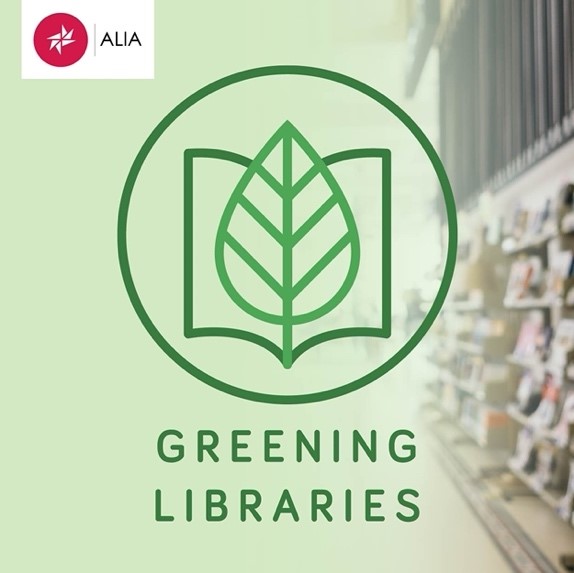The Australian Library and Information Association: Greening Libraries in Australia
Dr. Antonia Mocatta
Director of Central Services, University Library, University of Sydney
E-mail: [email protected]

The Australian Library and Information Association (ALIA) is the national professional organisation for the Australian library and information services sector. It has recently launched its Greening Libraries initiative, to provide leadership for the sector and information professionals to work towards a sustainable future.
ALIA’s commitment to sustainability includes a target, set in October 2021, for the organisation to become carbon neutral by 2030. ALIA CEO, Sue McKerracher, confirms early measures toward carbon neutrality are already in place, such as having had energy efficient lighting fitted at ALIA offices, eschewing bottled water at meetings and events, using sustainable sourcing, and reducing printed promotional materials. Building on these initial moves, ALIA plans to hire a consultant to undertake an audit to provide a baseline and highlight areas for improvement, and develop a roadmap for carbon neutrality including measurable goals. ALIA will also work towards Climate Active certification, a scheme accredited by the Australian government.
As a peak body for the Australian library and information sector, McKerracher sees ALIA playing a stewardship role in library sustainability and working collaboratively with the sector to support environmentally sustainable outcomes. The ALIA Sustainable Libraries Group already exists to educate colleagues and provide support on issues of environmental, social and financial sustainability. While ALIA supports the UN Sustainable Development Goals as a whole, its SDG targets include developing guidelines for Australian libraries’ environmental sustainability, and ALIA plans to realise this through its Greening Libraries initiative.
Work has commenced on the development of resources planned to support libraries on their environmental sustainability journey. With the generous support of the Council of Australian University Librarians, ALIA has commissioned a team from Charles Sturt University to conduct Greening Libraries research. The initial output is a literature review that highlights practical sustainability approaches from across the international library sector, as well as the key enablers for success. A further report, in early 2022, will incorporate case studies about how different types of libraries address environmental sustainability.
Based on these research outputs, ALIA plans to launch a survey to enable libraries to self-assess their environmental sustainability. The scoring will be done on two levels. The first will focus on actionable factors within the control of most libraries including: commitment and strategy; greening initiatives such as recycling and re-use; communication and awareness raising; and how the library monitors its environmental performance. Recognising that many libraries are part of a larger organisation and not independent, the second group of criteria relates to a library’s ability to exert influence towards greening for buildings, the design of spaces, and through partnering with others.
ALIA plans to analyse the survey responses and publish an anonymised national database of green library benchmarking data. ALIA additionally plans to publish an analysis of trends in environmentally sustainable library design by drawing on building specifications data from three rounds of ALIA’s Library Design Awards. Beyond these valuable resources the ALIA toolkit will also include a series of library-specific templates to support libraries to plan and track their environmental strategies.
ALIA’s Greening Libraries initiative will provide a range of practical resources to support Australian libraries to develop environmental strategies. However, Sue McKerracher recommends that starting small is the best first step for libraries embarking on their environmental sustainability journey. Easily achievable examples include considering alternatives to plastic book covering and labels, and identifying sustainable options for weeding collections such as those on offer through the James Bennett Sustainability project. Building up a body of smaller achievements in consumption and waste reduction, and client education will form an excellent base for planning and progressing larger strategic initiatives. Every little thing counts, and ALIA strongly supports the view that by working together libraries can make a positive contribution to carbon reduction.
